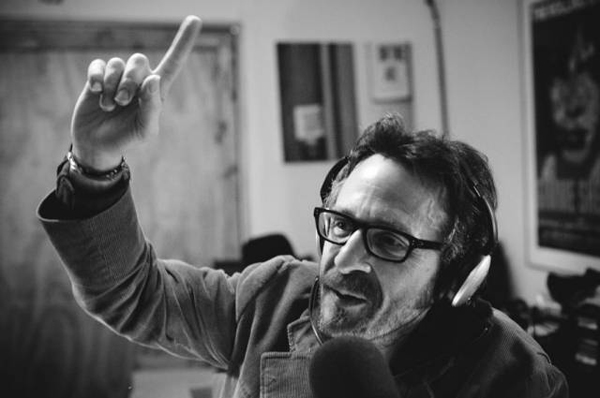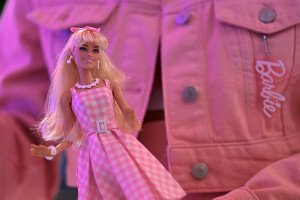Comedy Q+A: Marc Maron Recalls His Beginnings in Boston
Update, 2/7/2013, 2:15 p.m.: Marc Maron’s shows in February were canceled due to Winter Storm Nemo. They have been rescheduled for Saturday, March 30. For details, visit thewilburtheatre.com.
Photo via Marc Maron/MySpace
Marc Maron is a busy man: he produces two episodes of his WTFpod podcast every week, he just finished final shots on the first season of his IFC series “Maron”, two weeks ago he delivered a manuscript for his first book, and all the while he has maintained an active touring schedule as a comedian.
We talked to Marc Maron while he was on the North Carolina leg of his “Out of the Garage” tour.
When you come back to a place like Boston, do you have favorite haunts that you insist on checking out? It must be incredibly strange to go back to the Combat Zone and see none of the original seediness and danger there?
Honestly, there really is nothing there from my time. I lived there from ’81-’87. Kenmore Square is no longer recognizable, same with Somerville. I’m not saying it’s for better or worse. On some level, some of those places are functioning better. Somerville, when I lived there, was very working class, and Redbones had literally just opened—I was one of the first customers! Kenmore Square seems to have just been erased, which is a little sad, but that’s what happens. Catch a Rising Star, Deli King…they’re all gone. There’s nowhere for me to haunt—the ghost is living in me.
What was Boston like when you came up? Were there more clubs, bookers, paying shows? How did this create so many great performers?
Back in the day, Boston was unique in how it was structured comedically. You had unique performers—incredibly funny guys—who could make a living without leaving the region. On any given week there was no less than 15 or 20 paying gigs in New England that you would drive to. When I was starting out, these were two-man shows—you would drive the headliner out, you would do a half-hour, and the headliner would do an hour. With that kind of economy, there were very strong regional acts who could make a very good living doing these shows. At one point there were six Nick’s [comedy clubs], and Stitches had a few locations as well, but Boston is a very political town on all levels. It’s very territorial and it can be a tough character, but that’s the way it was structured and there was no other place like it.
It’s such a contrast to what we have now, which is a couple clubs and a handful of non-paying alt rooms.
Things have definitely changed [in Boston] and so many other places. When I was younger, there were no “free nights” and there were no alt rooms—it’s tougher now. When Catch a Rising Star opened, that was like “our” little world”—me and David Cross, Janeane Garofalo, Chuck Sklar, a whole bunch of us who just lived at that place. It really did feel like an “alternative” to Nick’s.
It’s remarkable how many people from that era, your time in Boston, are behind the scenes in entertainment. So many of them are not just writers, but producers on shows like “Real Time With Bill Maher” and in the studio system.
Those were the smart guys—they had discipline and had a personal responsibility as to how to sustain their careers in show business. I’ve never been able to do it—it’s how you’re cut, I guess. But what they did was a lot more lucrative and a lot less damaging than a guy who would say, “I’m just a [bleep]-in’ comic, man!”
What was your selection process for building the panel for your live WTF show in a place where you have so much history?
Oh man, this is such a great group of people. But from way back I’ve got DJ Hazard and Sue Costello. DJ was around when I was doing my first open mics and Sue was around when I got going. Dan Crohn was really just a huge fan, but I really think this is going to be a fun show.
Sue Costello is fantastic, I just watched her on “Comics Unleashed” the other night, and even on a horrible show like that, she made it funny.
Byron Allen’s show? That’s a painful show. I’ve done that show, and it’s a weird situation. You’re in a warehouse-like studio and Byron Allen is there, shamelessly setting up jokes without even trying to make it a conversation. “So…you were on an airplane?”
Between your current tour and the premiere of your IFC show “Maron” in May, it looks like you will have a busy spring. What is your life like now?
I’m just trying to lock in and not [mess] anything up. I want to work on a new hour [of comedy] and tape it as a special, I have a book I need to finish by next week, and there are a few things we need to reshoot for the show. Now I just have to be happy with what I’ve done, make sure that I’ve done the best work I can, and not let my brain derail me. I can’t second-guess what I’m doing. I should have done this, I should have done that, I’m an idiot… I’ve got to shut that guy up and stay focused.



